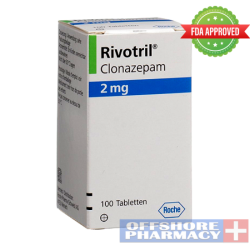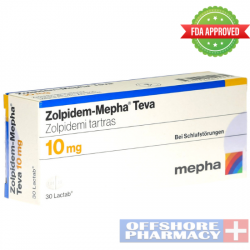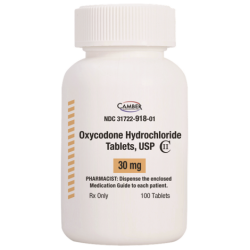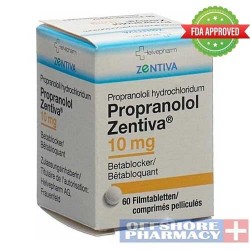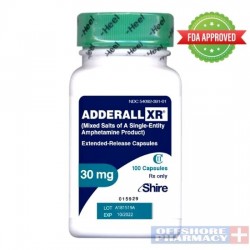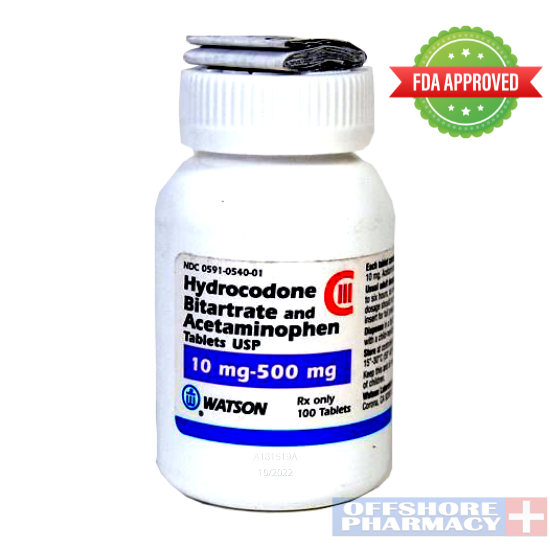- STOCK: Out Of Stock
- AVAILABLE STRENGTH: 10/500 mg
- GENERIC FOR: Vicodin / Lortab / Lorcet-HD
- ACTIVE INGREDIENTS: HYDROCODONE
- DELIVERY TIME: 10-15 DAYS
- DELIVERY BY: RMS (TRACKABLE)
- SHIPPED FROM: PHILIPPINES
Available Options
What is Hydrocodone?
It includes both an opioid (hydrocodone) and a non-opioid pain medication (acetaminophen).
The combination of a single hydrocodone 10/500 mg tablet is
- 10 milligrams of Hydrocodone
- 500 milligrams of Acetaminophen
This drug is used to treat pain that ranges from mild to severe. It includes both an opioid (hydrocodone) and a non-opioid pain medication (acetaminophen). Hydrocodone alters the way your body perceives and responds to pain by acting on the brain. Acetaminophen might also help to bring down a temperature.
When other pain relievers haven't worked well enough or can't be tolerated, a combination of hydrocodone and acetaminophen is used to relieve pain severe enough to necessitate opioid treatment.
Acetaminophen is a pain reliever and fever reducer that is prescribed to patients. When used for a long time, it does not become habit-forming. When taken in large dosages, however, acetaminophen can have severe side effects, including liver damage.
Hydrocodone is a narcotic analgesic, which means it relieves pain (pain medicines). It relieves pain and stops or prevents coughing by acting on the central nervous system (CNS).
When used for an extended period of time, hydrocodone can become habit-forming, resulting in mental or physical dependence. People with chronic pain, on the other hand, should not be discouraged from using opiates to relieve their pain because they are afraid of becoming addicted. When opioids are taken for this purpose, mental dependency (addiction) is unlikely to develop. If treatment is abruptly interrupted, physical reliance may result in withdrawal symptoms. Severe withdrawal adverse effects, on the other hand, can typically be avoided by gradually reducing the dose over time until the medication is totally stopped.
Precautions before using Hydrocodone
When determining whether or not to use a medicine, the dangers must be evaluated against the benefits. This is a choice that you and your doctor will make together. The following should be taken into account when using this medicine:
If you are Allergic to Hydrocodone
If you've ever had an unusual or adverse reaction to this or any other medicine, tell your doctor. Also inform your doctor if you have any additional allergies, such as those to foods, colors, preservatives, or animals. Read the ingredients on the label or container of non-prescription products carefully.
Pediatric
In the pediatric population, appropriate investigations on the link between age and the effects of hydrocodone and acetaminophen combination capsules and tablets have not been conducted. Safety and efficacy have yet to be determined.
Appropriate investigations conducted to yet have not revealed any pediatric-specific issues that would restrict the utility of the hydrocodone and acetaminophen combination oral solution in children aged 2 and up. However, safety and efficacy in children under the age of two have yet to be determined.
Correct Use of Hydrocodone
Do not take more of it, take it more frequently, or take it for longer than your doctor has prescribed. This is especially significant for senior individuals, who are more susceptible to the side effects of painkillers. If you take too much of this medicine for too long, it might become habit-forming (creating mental or physical reliance) or lead to an overdose. Acetaminophen in large doses might harm the liver.
To avoid addiction, abuse, and misuse of the hydrocodone and acetaminophen combination, it is critical that you understand the rules of the Opioid Analgesic REMS program. A Medication Guide and a Patient Information Leaflet should be included with this medication. These instructions should be carefully read and followed. If there is new information, read it again each time you refill your medication. If you have any concerns, talk to your doctor.
Using a marked measuring spoon, oral syringe, dropper, or medicine cup, measure the oral liquid. The usual teaspoon may not be large enough to hold the required amount of liquid.
What other medication you should not take together with hydrocodone
Opioids can interact with a variety of different medications, resulting in serious adverse effects or death. If you also use: Make sure your doctor is aware of this.
- Cold or allergy medications, asthma/COPD medication with a bronchodilator, or a diuretic ("water pill");
- motion sickness, irritable bowel syndrome, or overactive bladder medications;
- other opioids, such as prescription cough medication or opioid pain relievers;
- diazepam, alprazolam, lorazepam, Xanax, Klonopin, Versed, and other sedatives, such as Valium;
- sleeping pills, muscle relaxers, or medicine to treat mood disorders or mental illness; or drugs that make you sleepy or slow your breathing - a sleeping pill, muscle relaxer, or medicine to treat mood problems or mental illness; or
- A stimulant or pharmaceutical for depression, Parkinson's disease, migraine headaches, major infections, or nausea and vomiting that affects serotonin levels in the body.
Side Effects of Hydrocodone
Alcohol and other CNS depressants will be amplified by this medication (medicines that can make you drowsy or less alert). Antihistamines or allergy or cold medicine, sedatives, tranquilizers, or sleeping medicine, other prescription pain medicine or opioids, seizure medicine or barbiturates, muscle relaxants, or anesthetics (numbing drugs), including some dental anesthetics, are all examples of CNS depressants. If you drink three or more alcoholic beverages while taking acetaminophen, you may increase your risk of liver damage. Do not consume alcoholic beverages, and consult your doctor before taking any of the following medications while taking this medication.
This drug has the potential to become addictive. If you think the medicine isn't working as effectively as it should, don't take more than the recommended dose.
If you or someone else thinks they may have taken an overdose of this medication, get immediate medical attention. In the event of an overdose, your doctor may prescribe naloxone. Cold, clammy skin, coughing with pink frothy sputum, dark urine, difficult or trouble breathing, irregular, fast or slow, or shallow breathing, nausea, vomiting, upper stomach pain, pale or blue lips, fingernails, or skin, pinpoint pupils of the eyes, or yellow eyes or skin are all signs of an overdose.
This medication may cause breathing issues during sleep (eg, sleep apnea, sleep-related hypoxemia). If you experience sleep apnea (a condition in which you stop breathing for brief periods of time while sleeping) while taking this prescription, your doctor may reduce your dose.
This medication may create difficulties with the adrenal glands. If you develop darkening of the skin, diarrhea, dizziness, fainting, loss of appetite, mental depression, nausea, skin rash, unusual tiredness or weakness, or vomiting, see your doctor straight once.
If you feel discomfort or tenderness in your upper stomach, pale feces, dark urine, lack of appetite, nausea, unusual weariness or weakness, or yellow eyes or skin, see your doctor immediately once. These signs and symptoms could indicate major liver disease.
This medication has the potential to induce significant skin responses (eg, acute generalized exanthematous pustulosis, Stevens-Johnson syndrome, toxic epidermal necrolysis). If you have blistering, peeling, or loosening skin, chills, cough, diarrhea, itching, joint or muscle pain, red irritated eyes, red skin lesions with a purple center, sore throat, sores, ulcers, or white spots in the mouth or on the lips, or unusual tiredness or weakness, consult your doctor right away.
This medication may cause anaphylaxis, a severe allergic reaction that can be life-threatening and necessitates rapid medical intervention. If you get a rash, itching, hoarseness, problem breathing, trouble swallowing, or any swelling of your hands, face, or lips while taking this prescription, contact your doctor straight once.
When you suddenly rise up from a laying or sitting posture, you may experience dizziness, lightheadedness, or fainting. Slowly rising from a seated position may assist to alleviate this issue. Dizziness or lightheadedness might also be relieved by lying down for a bit.
This medication may cause dizziness, drowsiness, or lightheadedness. Do not drive or do anything else potentially dangerous until you have a better understanding of how this prescription affects you.
Long-term usage of opioids might result in severe constipation. Your doctor may advise you or your child to take laxatives, drink plenty of water, or increase the amount of fiber in your diet to avoid this. Continued constipation can lead to more serious issues, so be sure to follow the recommendations carefully.
Tell the medical doctor in charge that you or your kid is taking this medicine before you or your child undergoes any medical tests. This drug may influence the findings of certain tests.
Do not change your dose or stop taking this medicine without consulting your doctor first. Before entirely discontinuing, your doctor may advise you or your child to gradually lower the quantity you're using. This may help prevent your illness from worsening and lessen the likelihood of withdrawal symptoms such as stomach cramps, anxiety, fever, nausea, runny nose, sweating, tremors, or difficulty sleeping.
If you take this medicine while you're pregnant, you could have serious side effects, such as neonatal withdrawal syndrome in your infant. If your kid has an odd sleep pattern, diarrhea, a high-pitched cry, irritability, shakiness or tremors, sneezing, weight loss, vomiting, yawning, or failure to gain weight, please contact your doctor straight once. If you suspect you're pregnant or plan to get pregnant while taking this medication, call your doctor straight away.
If you feel anxiety, restlessness, a racing heart, fever, sweating, muscle spasms, twitching, nausea, vomiting, diarrhea, or see or hear things that aren't there, call your doctor straight away. These could be signs of serotonin syndrome, a dangerous illness. If you take other medications that alter serotonin levels in your body, your risk may be increased.
Overdosage signs and symptoms
- Urine that is bloody or hazy causes a shift in consciousness.
- chest discomfort or agony
- skin that is chilly and clammy
- Coughing that occasionally results in pink frothy sputum
- diminished responsiveness or awareness
- breathing difficulties or problems
- sleepiness to the extreme
- an overall sense of unease or disease
- increased perspiration
- breathing that is uneven, rapid or sluggish, or shallow
- erratic heartbeat
- dizziness, lightheadedness, or fainting
- consciousness loss
- There is no pulse or blood pressure.
- There is no movement or muscle tone.
- not taking a breath
- Lips, fingernails, or skin that are pale or blue
- extreme drowsiness
- a heartbeat that is sluggish or irregular
- heart stops beating
- an abrupt reduction in the amount of urine produced
- Inflammation of the legs and ankles
- nasty stench on the breath
To do when overdose
If someone has overdosed and is experiencing serious symptoms such as passing out or having difficulties breathing, provide naloxone if it is available, and then dial 911. Call a poison control center straight away if the person is awake and has no symptoms. Residents in the United States can contact their local poison control center by dialing 1-800-222-1222. Residents of Canada can contact a poison control facility in their province. Sluggish/shallow breathing, nausea, vomiting, loss of appetite, sweating, stomach/abdominal discomfort, excessive exhaustion, slow heartbeat, yellowing eyes/skin, dark urine, and coma are all signs of an overdose.
Hydrocodone Storage
Keep hydrocodone away from heat, moisture, and direct light. Preserve Hydrocodone in a closed container at room temperature. Prevent the freezer from freezing.
Common FAQ (Frequently Asked Questions) About Hydrocodne
Q. Does hydrocodone make you sleepy?
A. Yes. You may feel tired, dizzy, or lightheaded after taking an acetaminophen-hydrocodone oral tablet. Avoid driving or operating machinery until you have a better understanding of how your body will react to this drug. Other negative effects of this medication are possible.
Q. How much Hydrocodone is too much?
A. Adults should take one or two caplets every four to six hours, with a maximum of eight caplets per day.
Q. How long does it take for hydrocodone to take effect?
A. In less than an hour, you should start to feel the effects of hydrocodone. A 10-mg oral dose of the medicine reaches peak blood concentrations in around 1 to 2 hours after consumption, People who use hydrocodone frequently develop a tolerance to it over time.
Q. What Do Hydrocodone and Oxycodone Have in Common?
A. Both hydrocodone and oxycodone are analgesics. They interfere with your body's pain signals. They're fairly comparable, however, the side effects are a little different.
Both are opioid painkillers, which have the potential to cause addiction. Opioids are derived from the poppy plant, although there are also synthetic forms.
Q. What is the difference between hydrocodone and oxycodone?
A. The primary distinction between oxycodone and hydrocodone is that oxycodone has an additional oxygen atom. Furthermore, oxycodone is made from thebaine and is solely used to treat pain, but hydrocodone is made from codeine and can be used to treat both pain and cough.
Q. Which is stronger Oxycodone or Hydrocodone?
A. Both are extremely powerful, but oxycodone is roughly 30% stronger than hydrocodone. However, many studies have shown that a combination of oxycodone and acetaminophen is more effective than hydrocodone and acetaminophen in treating pain.
Hydrocodone is also sold under trade names Vicodin, Lortab,Lorcet-HD, Hycodan, Vicoprofen
| Also Sold Under | |
| Trade Names | Vicodin, Lortab,Lorcet-HD, Hycodan, Vicoprofen |
| Duration of action | |
| Action's duration | 4 to 6 hours |
| Onset of action | 10 to 30 mins |
| Packaging | |
| Packaging | in Vacuum Packaging |
| Street Names | |
| Common | Vike, Watsons, Watson-387, Vics, Vicos, Hydros, Lorris, Fluff, Scratch, Norco, Idiot Pills, Tabs, 357s |
| Clinical Information | |
| Dependence Liability | High |
| Indication | management of severe pain, cold , cough , allergic rhinitis in combination with decongestants, antihistamines |
| Composition | |
| Combination | Hydrocodone Bitartrate 10 mg Acetaminophen 500 mg |
| Generic Name | Hydrocodone Bitartrate and Acetaminophen |
| Drug Class | |
| Drug Class | opiate analgesics, antitussives |
